All Formats & Editions

The Theory of Moral Sentiments
Best known for his revolutionary free-market economics treatise The Wealth of Nations, Adam Smith was first and foremost a moral philosopher. In his first book, The Theory of Moral Sentiments, he investigated the flip side of economic self-interest: the interest...
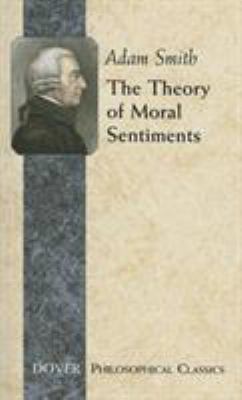
The Theory of Moral Sentiments
The foundation for a general system of morals, this 1749 work is a landmark in the history of moral and political thought. Readers familiar with Adam Smith from The Wealth of Nations will find this earlier book a revelation. Although the author is often misrepresented as a calculating...
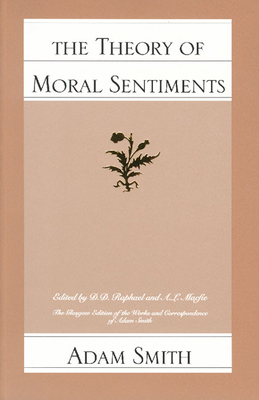
The Theory of Moral Sentiments
The Theory of Moral Sentiments, Smith's first and in his own mind most important work, outlines his view of proper conduct and the institutions and sentiments that make men virtuous. Here he develops his doctrine of the impartial spectator, whose hypothetical...
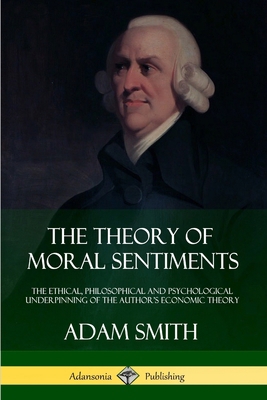
The Theory of Moral Sentiments: The Ethical, Ph...
Adam Smith's theory on morals provides the philosophical bedrock for his future works on economics, including his most famous book The Wealth of Nations. Published in 1759, this work sees Smith follow the lead of his tutor and mentor Francis Hutcheson. He divides his ethical...

The Theory of Moral Sentiments

The Theory of Moral Sentiments: (with an Introd...
![La teoría de los sentimientos morales (Anotada ... [Spanish] B08D4VPVZJ Book Cover](https://i.thriftbooks.com/api/imagehandler/l/D0BE3B48D2DB33F0D02D8B78A955C74641CBF06D.jpeg)
La teoría de los sentimientos morales (Anotada ... [Spanish]
Edici n en tapa blanda del cl sico de Adam Smith, anotada y ampliada con su biograf a y los antecedentes del pensamiento econ mico. Fundador de la econom a cl sica y autor de La riqueza de las naciones, ADAM SMITH (1723-1790) suele ser tenido s lo como economista, pero el campo...

The Theory of Moral Sentiments

The Mind of Adam Smith Part 1: The Theory of Mo...

The Theory of Moral Sentiments

The Theory of Moral Sentiments
To truly understand Adam Smith's economic masterpiece "The Wealth of Nations", one must understand its moral foundation. Without Smith's essential prequel, "The Theory of Moral Sentiments", the more famous "Wealth of Nations" can easily be misunderstood, twisted, or dismissed...

The Theory of Moral Sentiments: The Ethical, Ph...
Adam Smith's theory on morals provides the philosophical bedrock for his future works on economics, including his most famous book The Wealth of Nations. Published in 1759, this work sees Smith follow the lead of his tutor and mentor Francis Hutcheson. He divides his ethical...

The Theory Of Moral Sentiments

The Theory Of Moral Sentiments

The Theory of Moral Sentiments. By Adam Smith,

The Theory of Moral Sentiments
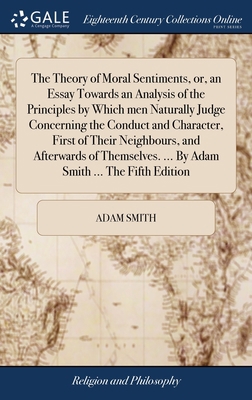
The Theory of Moral Sentiments, or, an Essay To...
The 18th century was a wealth of knowledge, exploration and rapidly growing technology and expanding record-keeping made possible by advances in the printing press. In its determination to preserve the century of revolution, Gale initiated a revolution of its own: digitization...

The Works of Adam Smith: The Theory of Moral Se...

Adam Smith: The Theory of Moral Sentiments
Adam Smith's major work of 1759 develops the foundation for a general system of morals, and is a text of central importance in the history of moral and political thought. Through the idea of sympathy and the mental construct of an impartial spectator, Smith formulated highly...
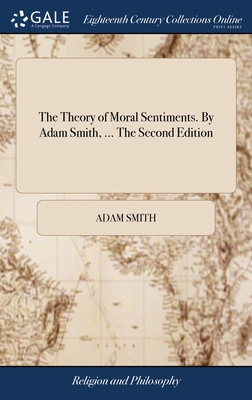
The Theory of Moral Sentiments. By Adam Smith, ...
The 18th century was a wealth of knowledge, exploration and rapidly growing technology and expanding record-keeping made possible by advances in the printing press. In its determination to preserve the century of revolution, Gale initiated a revolution of its own: digitization...

The Theory of Moral Sentiments
Adam Smith's major work of 1759 develops the foundation for a general system of morals, and is a text of central importance in the history of moral and political thought. Through the idea of sympathy and the mental construct of an impartial spectator, Smith formulated highly...

The Theory of Moral Sentiments
The foundation for a general system of morals, this 1749 work is a landmark in the history of moral and political thought. Readers familiar with Adam Smith from The Wealth of Nations will find this earlier book a revelation. Although the author is often misrepresented...

Adam Smith: The Theory of Moral Sentiments
Adam Smith's The Theory of Moral Sentiments is must reading for those who value living a free and moral life.
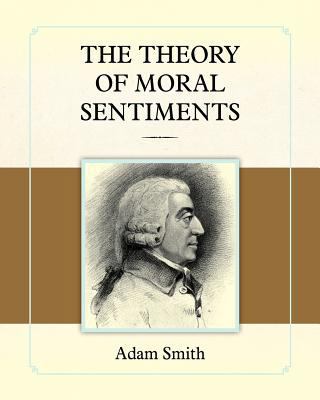
The Theory of Moral Sentiments




